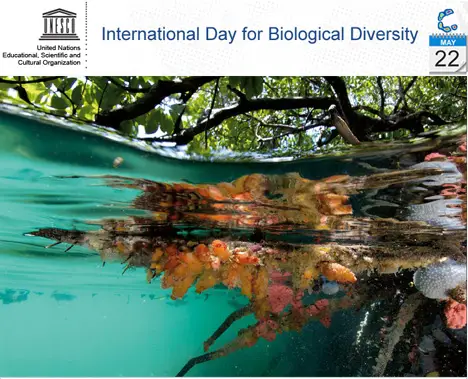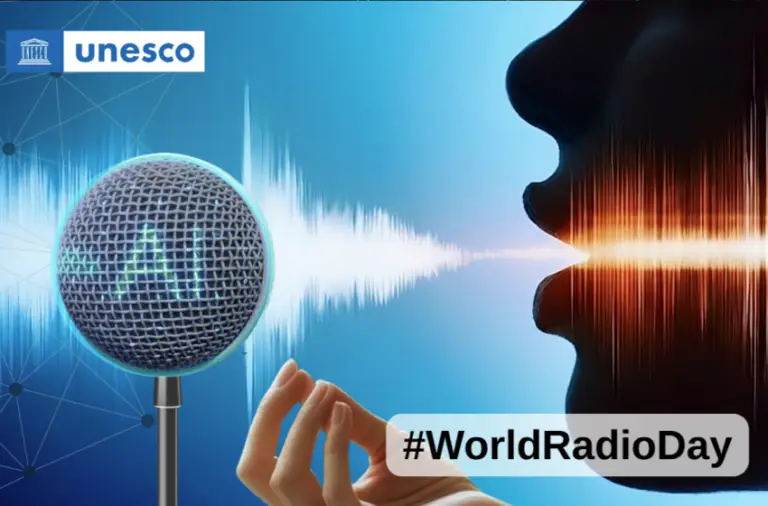유네스코와 섬 생물다양성
올해 세계 생물다양성의 날은 유엔이 지정한 ‘2014 세계 소도서 개도국의 해’의 일환으로 ‘섬 생물다양성’에 집중하고자 합니다.
오는 9월에 ‘제3차 소도서 개도국 국제회의’가 사모아에서 열립니다. 유네스코는 2015년 이후의 새로운 지구적인 지속가능발전 의제를 설정하는데 기여할 이 중요한 행사 준비를 지원하고 있습니다. 지구적인 지속가능발전을 위해서 소도서 개도국이 얼마나 중요한지 인식해야 합니다.
여기서 섬의 생물다양성은 매우 중요합니다. 많은 섬과 군도에서는 오랜 시간에 걸쳐 특유의 생물다양성을 진화시켜 왔습니다. 섬 생물다양성은 높은 수준의 고유성을 지니며 작은 섬에서는 특히 멸종에 취약한 종들을 비롯해 특별한 보전 과제를 안고 있습니다.

섬 주민들의 생계와 문화적 정체성은 항상 생물다양성과 뗄 수 없을 정도로 긴밀히 연결되어 왔습니다. 하지만 사람과 농작물, 가축, 해충 등 관련 생물다양성으로 인해, 지역 고유의 생물다양성의 멸종 위기는 특히 높아졌으며, 새로운 생물군집은 많은 지역에서 고유의 섬 생물다양성을 크게 바꾸고 있습니다. 오늘날 기후변화와 자연재해, 편향된 개발은 섬 생물다양성은 물론 섬에 사는 사람들의 지속가능성까지 위협하고 있습니다.
유네스코는 이런 과제들을 알리기 위한 행동에 나서고 있습니다. 세계 섬‧연안 생물권보전지역 네트워크(20개 가입)와 태평양 생물권보전지역 네트워크(10개 가입)는 유네스코 인간과생물권계획(MAB) 사업의 세계 생물권보전지역 네트워크에 속해 있습니다. 세계유산협약 또한 섬에 있는 많은 자연유산을 포함합니다.
유네스코 정부간해양학위원회(IOC)는 생계를 해양자원에 크게 의존하는 지역인 소도서 개도국에 초점을 두고 해양 및 연안 과학연구소 소장들의 리더십 능력을 키우고 있습니다. IOC의 해양 생물지리정보시스템은 소도서 개도국을 포함한 56개국 500개 이상의 연구소들이 전지구적으로 연합을 형성하고 유지하고 있으며, 세계의 해양 생물다양성 및 생물지리 데이터와 정보로 가는 관문입니다.
또한 유네스코는 섬 주민들의 역량을 강화하고, 지역사회가 문화적으로 섬세하고 과학적으로 건전한 자신의 자원을 스스로 조직하고 창조하도록 돕는 네트워크를 개발하기 위해 ‘기후 최전선(프런트라인)’과 ‘샌드워치(Sandwatch)’와 같은 사업을 하고 있습니다. 이런 활동들은 섬 생물다양성 보전 활동을 지원합니다.
이 모든 것들을 통해 유네스코는 ‘소도서 개도국의 지속가능발전을 위한 행동 프로그램’을 실행하고자 모든 파트너들과 협력하고 있습니다. 또한 성공적인 제3차 소도서 개도국 국제회의를 개최하기 위해 전력을 다하고 있습니다.
2015년 이후의 개발 의제를 설정할 때, 우리는 섬 생물다양성의 중요성을 인식하고, 인간 복지의 기반이 되는 이 소중하고 대체 불가능한 자연자원의 보전을 위해 협력해야 합니다.
원문: 영어
Message from Ms Irina Bokova, Director-General of UNESCO, on the occasion of International Day for Biological Diversity, 22 May 2014
UNESCO and Island Biodiversity.
This year, the International Day for Biological Diversity is dedicated to “island biodiversity,” in line with the designation by the United Nations General Assembly of 2014 as the International Year of Small Island Developing States.
In September, Samoa will host the Third International Conference of Small Island Developing States. UNESCO is helping to prepare this major event, which will help to shape a new global sustainable development agenda to follow 2015. This agenda must recognize the importance of Small Island Developing States for global sustainable development.
Island biodiversity is essential here. Many islands and archipelagos have evolved unique biodiversity over time, with a high rate of endemism and particular conservation challenges, with species on small islands being particularly vulnerable to extinction.
The livelihoods and cultural identities of islanders have always been inextricably linked to biodiversity. However, with the presence of people and associated biodiversity — crops, livestock and pests — the risk of extinction to native biodiversity is especially high, and novel communities of species have largely replaced native island biodiversity in many places. Today, climate change, natural disasters, and skewed development are threatening the sustainability of human communities on islands as well as island biodiversity.
UNESCO is acting to address these challenges. The sub Network of Island and Coastal Biosphere Reserves (20 members) and the Network for Pacific Biosphere Reserves (10 members) belong to the World Network of Biosphere Reserves under UNESCO’s Man and the Biosphere Programme. The World Heritage Convention also includes many natural sites on islands.
UNESCO’s Intergovernmental Oceanographic Commission is building the leadership capacity of the directors of marine and coastal sciences institutes, with a focus on Small Island Developing States, where livelihoods depend heavily on marine resources. The Intergovernmental Oceanographic Commission’s Ocean Biogeographic Information System is a gateway to the world’s ocean biodiversity and biogeographic data and information, building and maintaining a global alliance of over 500 institutions in 56 countries, including in Small Island Developing States.
UNESCO is also working through such initiatives as Climate Frontlines and Sandwatch, to build the capacities of islanders and to develop networks that help communities to self-organise and create their own resources that are culturally sensitive and scientifically sound. This includes initiatives to help conserve island biodiversity.
Throughout all of this, UNESCO is committed to working with all partners for the implementation of the Programme of Action for the Sustainable Development of Small Island Developing States, and the Organization is contributing full-steam to preparing a successful Third International Conference of Small Island Developing States.
As we shape the post-2015 development agenda, we must recognise the importance of island biodiversity and work together to ensure the conservation of this precious and irreplaceable natural resource, which is the basis of human well-being.


